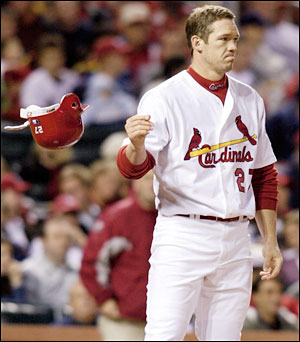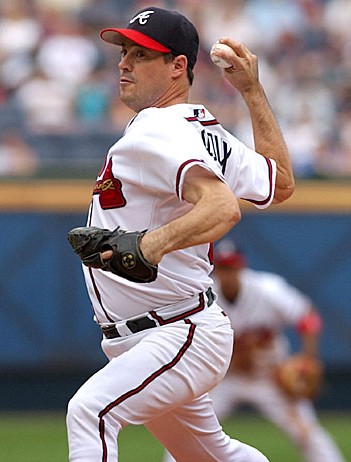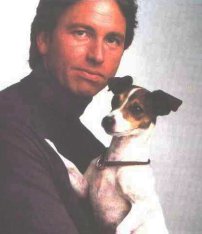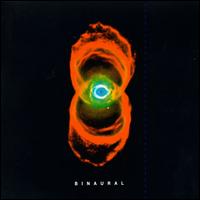I'm honestly not sure how I did in the league, and it seems to not be listed in Yahoo's archives, but I figured I'd roll through the players on my team just for kicks and see how they did. I didn't know as much about baseball as I do now of course, but offhand, it looks like a pretty good 1999 fantasy team. I feel like it was points instead of roto, but the points were probably given for things related to 5x5 roto stat, so Ill use those as the standards, rather than list all the double sand triples and such.
The "starters" (or at least that's how I have them written in - reserves are listed later):
OF:

Larry Walker - I feel like this had to be one of my earliest picks (though a couple of others look that way too, which makes me suspicious - I suppose there weren't that many people in the league, so that's a factor). Taking advantage of the insanely pro-hitting Coors, Walker who was just a year removed from an MVP, and had had another great year in 1998, seemed like a sure bet and led the league in average with a .379 average.

Brian Jordan - for some reason, Jordan was one of the players on this team that ended up becoming a fantasy favorite of mine even though he was merely an aveage player, he had an eminently average season in 1999 - his first with Atlanta. Perhaps I was fooled by his career best 1998.

Raul Mondesi - there was a time at which it looked like Mondesi could have become a big star, and he was a solidly above-average player for the first few years of his career. He was also coming off a career best 1997 , and unlike Jordan, a bit of a journeyman, Mondesi actually looked like he was a real possiblity to break out in '98, before falling off by a bit. His '99 was extremely similar to his 1998 but slightly better in terms of fantasy stats - 33 HRs (30 in '98), 98 runs (85 in '98) and 99 RBI (90 in '98) - all career highs, but this masked that Dodger stadium was slightly more hitter friendly than it had been in the recent past, so Mondesi was actually playing a little worse, but for fantasy it was about his peak, aside from his brutal .253 average - he also had a career high 36 steals.

1B: Jeff Bagwell - the second of four guys on this team that seem like they could have been first round picks, but I don't honestly remember what the conventional draft order was in the year. Bagwell was one of the best of a generation of strong first baggers (Frank Thomas, Mark McGwire, Rafael Palmeiro) but he had one fantasy baseball stat the rest of them didn't - Bags stole bases. Bagwell had yet another banner year with 42 round trippers, a league leading 143 runs scored, and 126 driven in, and stole 30. He really didn't have a bad year in the entire '90s decade.

2B: Dameon Easley - harken back to a time if you will, when Easley was, believe it or a not, an almost-superstar. It was a very short time, I grant, but there was a moment, more or less in 1997. He had another above average year in 1998, before falling back to average in 1999, where he would hover for a few years - he hit 20 home runs which was still nice from a middle infielder, with 65 RBI and 83 runs scored, and a .266 average. (And of course he didn't steal bases, so the power is a trade off for that I suppose, fantasy-wise).

SS: Barry Larkin - this borderline-hall-of-famer was nearing the end of his excellent career, and managed to put up a fine fantasy year, while his real quality was declining. He stole 30, scored 108 runs, drove in 75 and hit 12 jacks with a .293 average - acruing all these numbers in part by playing all but two regular season games.

3B: Scott Rolen - just one year removed from winning the Rookie of the Year award, it's too bad Rolen's find D couldn't count for fantasy. Rolen put up a fine year when he was on the field, albeit, a bit worse than his previous year - but the main problem was that he was only on the field for 112 games. Remarkably he stole 12 bases, and I had forgotten that apparently he stole a dozen or more bases somehow each of his first three years, though at bad percentages except for 1999.

C: Javy Lopez - up to this point it looked like the Braves may have had a relatively young star catcher for many years on their hands. Lopez was coming off a 34 home run year with 108 RBIs, and he was just as good in 1999, when he played. Unfortunately, that was for less than half the season - Lopez got in a total of 65 games, and was great in them - it was the only time he would play in less than 100 games until 2006.
Starting pitchers:

Pedro Martinez - yeah, this was a pretty good year - if you don't have some recollection of you, you probably weren't watching much baseball back in 1999. Along with Bagwell and Walker (and the next person coming up) he's one of four people I feel like could have been first rounders, and wonder how I came to get them all. Pedro was pretty much as good as it is possible for a starting pitcher to be, short of starting a trillion innings. Roto stats seemed to ally with more sophisticated stats as the Red Sox bats helped make sure he got in 23 wins, along with his otherworldly 2.07 ERA, .923 WHIP and 313 Ks. Now he obviously didn't quite do that in 1998, but he did pretty damn fantastically well, and would do again in 2000.

Greg Maddux - fourth pitcher I would have thought might be a first rounder - sure, he was at the tail end of his run of greatness (on his way to a fair run at very goodness) and we probably could have seen warning signs but we were certainly not that sophisticated back then - after all, he did have an NL leading 2.22 ERA in 1998. His numbers were not so great in 1999. To be fair, they weren't terrible by any means - but comparing them to Maddux numbers of old, it was pretty much his worst season since 1990. He finished with a 3.57 ERA and only 136 Ks, and a 1.345 WHIP but at least he picked up 19 Ws.

Andy Benes - ah, we begin the great run into players who aren't quite remembered so well (mostly more on this when we get to the reserves). Benes, a former number 1 overall pick had managed to carve out a career as a slightly above average pitcher, a career which began its decline in 1999, when his ERA shot up to 4.81 (which was below average but actually not that terrible in this era) from 3.97 and his WHIP shot up to 1.503 from 1.275. At least his wins only fell by one from 13 to 12.

Chan Ho Park - it is amazing that this guy is still managing to kick around (and also honestly that he was somehow at one point an all star - in 2001). That said, he was consistently decent while he was in LA, albeit with a massive walking problem, and having his ERA helped out by pitcher friendly Dodger Stadium. It all came crashing down in Texas, but of course 1999 figured to be his only truly bad year in LA - a 5.23 ERA backed with a 1.585 WHIP, though a solid 174 Ks (thankfully his 100 walks didn't count again outside of WHIP) and 13 wins.
Relief pitchers:

Troy Percival: He was a top tier relief pitcher for the first few years of his career - until he starting striking less people out and walking more. I just happened to catch him in the year when he was unlucky enough to have just 31 saves (11 less than the previous year) and struck out 58 instead of 87. Also amazed this guy is still pitching (though this is probably the end, but credit to him for hanging out so long, and coming back from a whole season out of the majors (2006).

Jeff Shaw - an unlikely big time closer in the late '90s as anyone because he didn't strike out all that many for a late inning reliever, Shaw was right in the middle of his string of five years of closing games and saved 34 of them while managing to only strike out 43 in 68 innings. Strangely he retired two years later at 34, after a relatively effective year - I'm not sure why (injury, personal reasons?).

Designated Hitter: Edgar Martinez - I assume this is more or less utility, and also am not sure why it's listed after the pitchers, but I clearly chose to take an actual designated hitter here, and a guy who I assume lost some fantasy value because this is the only spot that he could play. Otherwise, Edgar, a New York native, had another banner year as one of the lead hitting machines of the '90s - batting .337. He missed about 20 games, and also gets hurt in fantasy because his obscene amount of walks are meaningless. That said he put up a respectable 24 bombs and 86 both runs and RBI.
Reserves next time!


















